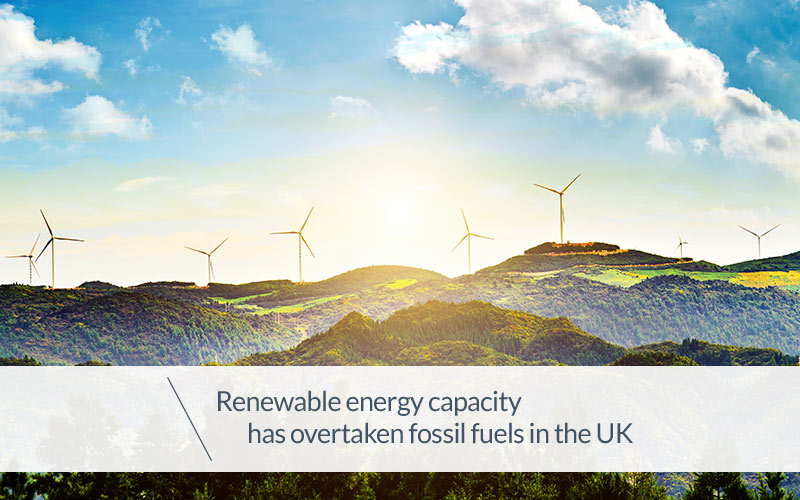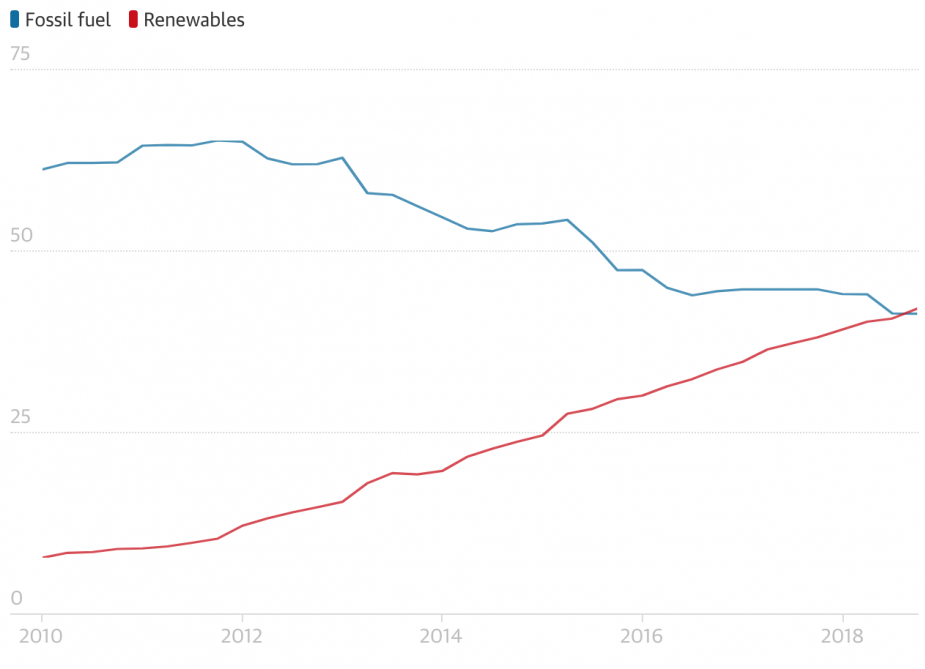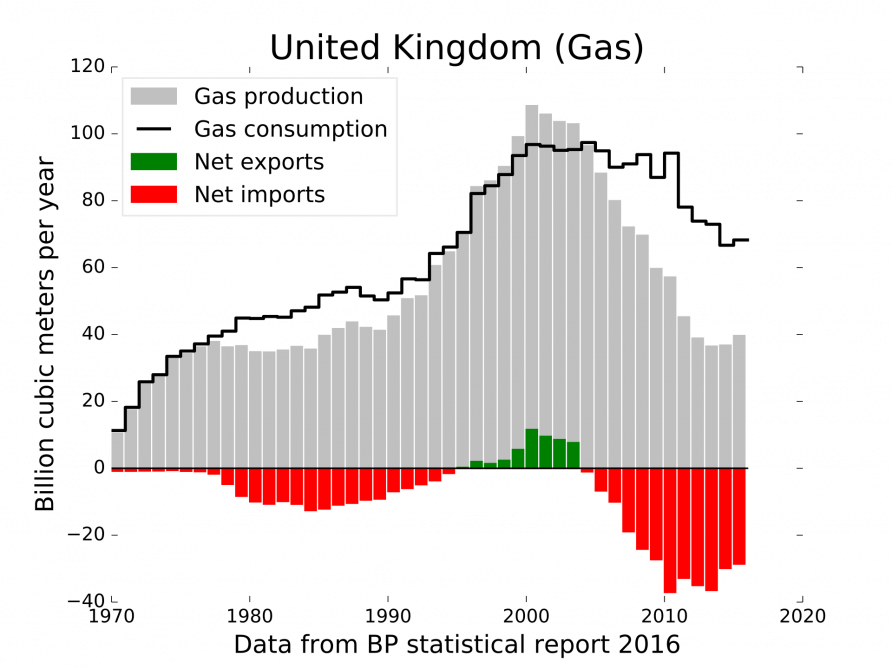
According to data collected by Imperial College in London, UK, there has been a notable shift, which no-one would have bet on just a few years ago.
Between July and September the share of renewable energy has overtaken that produced by traditional fossil fuels.
Here is a graph demonstrating that entirely unexpected and extraordinary fact.

Fossil fuels are out, renewable fuels have tripled
As can be seen in the graph, produced by The Guardian on the basis of data collected by Imperial College London, the share of fossil fuels has been in decline for 5 years now, whilst renewable energies are growing year on year at dizzying rates.
The overtake in recent months is actually slight, despite it representing a huge advance on the most optimistic forecasts.
Industry analysts have defined three principle reasons for the decline of fossil fuels:
- power stations have reached the end of their life spans;
- they have also become unprofitable;
- carbon taxes are having an effect.
It’s not purely by chance that carbon fuels have decreased over the last quarter, with just six carbon-fuelled power stations are still active.
On the other hand, wind, solar, biomass and hydroelectric power in the UK have reached 41.9 GW, literally overtaking the capacity of 41.2 GW of coal, gas and petroleum power stations, tripling output in just 5 years.
An increase over and above the “Dash for Gas” of the 90s
Data gathered by Imperial College London, shows an increase in renewables in the UK proportionally over and above that which occurred with natural gas at the beginning of the 90s, during the so-called “Dash for Gas”.

Following industry privatization, electrical companies decided to convert their power stations over to natural gas.
Peak output was hit in 2001, followed by a decline in the production of electrical energy from natural gas.
Dr. Iain Staffell, who undertook relevant research, declared:
“Britain’s power system is slowly but surely walking away from fossil fuels, and this quarter saw a major milestone on the journey.”



